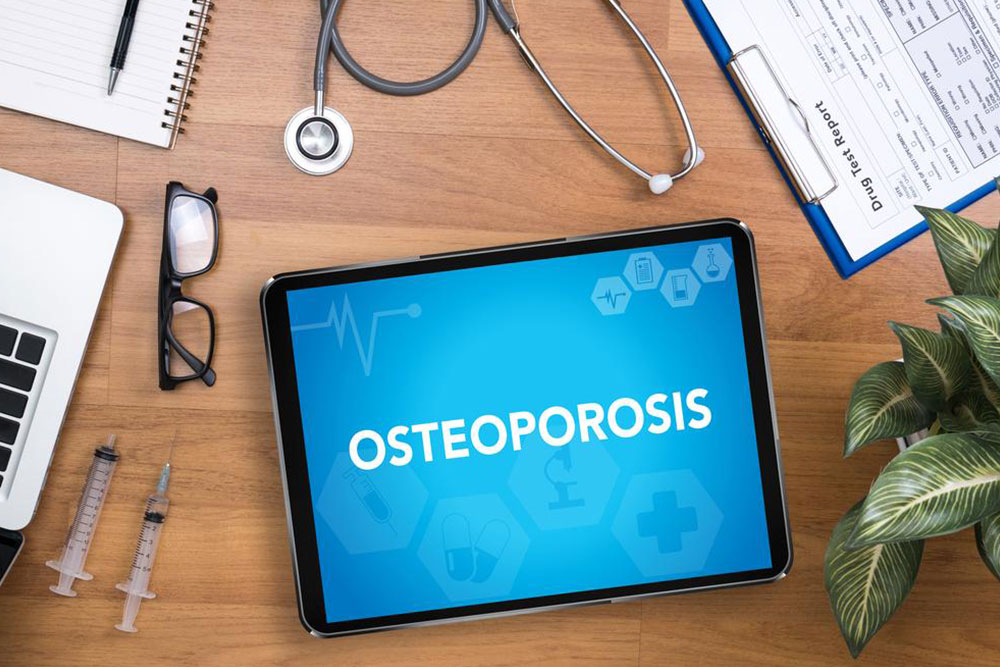Comprehensive Dietary Guidelines and Treatments for Osteoporosis Management
This comprehensive article explores essential dietary restrictions and effective medical treatments for osteoporosis, emphasizing nutritional strategies, lifestyle adjustments, and key medications to strengthen bones and prevent fractures. It provides valuable guidance for individuals managing this silent but serious condition, highlighting how a balanced diet and proper therapy can significantly improve quality of life.

Essential Dietary Strategies and Medical Interventions for Managing Osteoporosis
Osteoporosis is a chronic condition characterized by decreased bone mass and deterioration of bone tissue, leading to increased fragility and higher susceptibility to fractures. It is often called the silent disease because it progresses silently until a fracture occurs. Proper management involves a combination of dietary modifications, lifestyle changes, and medical interventions to strengthen bones and prevent fractures. This extensive guide delves into the key dietary restrictions, nutritional tips, and common medications used in osteoporosis treatment, providing a thorough approach for individuals seeking to maintain healthy bones and improve quality of life.
Understanding Osteoporosis and Its Impact
Osteoporosis affects millions worldwide, especially older adults, postmenopausal women, and individuals with certain health conditions. The disease involves the loss of bone density, which weakens the skeletal structure. As bones become porous and brittle, minor falls or injuries can lead to serious fractures, particularly in the hips, spine, and wrists. The importance of early diagnosis and proactive management cannot be overstated, as it significantly reduces the risk of fractures and associated complications.
Dietary Restrictions Essential for Osteoporosis Patients
Proper nutrition plays a vital role in maintaining bone health. Certain foods and dietary habits can exacerbate bone loss, making it crucial for osteoporosis patients to be mindful of their intake. Here are key dietary guidelines and foods to limit or avoid to support bone health:
1. Reduce Dietary Sodium to Protect Bone Density
Excessive salt (sodium) intake is a major contributor to calcium loss through the urine. High sodium levels in the diet can stimulate calcium excretion, leading to decreased bone mineral density over time. Processed foods, canned soups, preserved snacks, and fast foods are often high in sodium. It is recommended that osteoporosis patients limit their daily salt intake to no more than 1,500 to 2,300 milligrams, depending on individual health advice. Using herbs and spices instead of salt for flavoring can be an effective strategy to reduce sodium consumption while still enjoying savory dishes.
2. Limit Sugary Carbonated Beverages
Sodas, colas, and other carbonated drinks are rich in phosphoric acid and added sugars. These ingredients can disrupt the calcium-phosphorus balance in the body, promoting calcium excretion from bones and accelerating osteoporosis progression. Additionally, excessive sugar intake can interfere with nutrient absorption and impair overall bone health. Replacing these beverages with healthier options such as water, herbal teas, or fortified plant-based drinks is advisable for osteoporosis management.
3. Rethink Red Meat Consumption
While red meat is a good source of protein, iron, and zinc, it also contains sulfur-containing amino acids, such as cysteine and methionine. These sulfur compounds can lead to increased calcium excretion through the kidneys, weakening bones over time. A balanced diet emphasizing plant-based proteins like nuts, seeds, legumes, and soy products can provide essential nutrients for bone repair and maintenance. Incorporating a variety of vegetables and fruits ensures adequate intake of calcium, vitamin D, magnesium, and other vital minerals supporting bone strength.
4. Limit Alcohol Intake
Excessive alcohol consumption, particularly spirits like whiskey, vodka, and beer, has a detrimental effect on bone health. Alcohol interferes with the body's ability to absorb calcium and impairs the function of osteoblasts, the cells responsible for new bone formation. Chronic drinking can lead to decreased bone mass and increased fracture risk. Patients are advised to consume alcohol in moderation, adhering to recommended guidelines—generally no more than one drink per day for women and two for men—and to consider alcohol-free days periodically.
5. Moderate Caffeine Intake
Caffeinated beverages such as coffee, tea, and energy drinks can inhibit calcium absorption when consumed excessively. Caffeine acts as a diuretic, increasing calcium excretion through urine. While moderate coffee consumption (1-2 cups daily) may be acceptable, excessive caffeine intake (more than three cups a day) can negatively impact bone health. Switching to decaffeinated options or herbal teas can help maintain proper calcium levels and support overall skeletal integrity.
Medical Treatments and Supplements for Osteoporosis
In addition to dietary management, several medications are prescribed to prevent bone loss, promote bone formation, and reduce fracture risk. These treatments are often tailored to the severity of osteoporosis and individual patient needs. Here is an overview of commonly recommended medications:
Romosozumab (EVENITY®): This innovative medication is an antibody that both increases bone formation and decreases bone resorption. It is typically administered as a monthly injection and is used for postmenopausal women at high risk of fracture.
Prolia® (Denosumab): An injectable monoclonal antibody that inhibits osteoclast activity, thereby reducing bone resorption. Prolia is prescribed for women and men with osteoporosis who are at high risk of fractures, especially those who have failed or cannot tolerate other treatments.
Fosamax (Alendronic Sodium): An oral bisphosphonate that helps prevent bone breakdown by inhibiting osteoclast activity. Fosamax is widely used for long-term osteoporosis management and requires proper administration timing to maximize absorption.
Forteo (Teriparatide): A recombinant form of parathyroid hormone, this medication stimulates new bone growth and is often prescribed for severe osteoporosis cases or those with a history of fractures. It is administered via daily subcutaneous injections.
It is crucial for osteoporosis patients to work closely with healthcare providers to determine the appropriate medication regimen, monitor bone density, and adjust dosages as needed. Combining medical treatments with the right dietary choices and lifestyle modifications yields the best outcomes in preventing fractures and maintaining quality of life.
In conclusion, managing osteoporosis effectively requires a comprehensive approach that encompasses careful dietary management, regular physical activity, lifestyle adjustments, and medical intervention. Limiting foods that contribute to calcium loss, maintaining adequate nutrient intake, and adhering to prescribed medications can significantly improve bone health and reduce the risk of fractures. Staying informed and proactive about osteoporosis management empowers individuals to lead healthier, more active lives despite the challenges posed by the disease.





